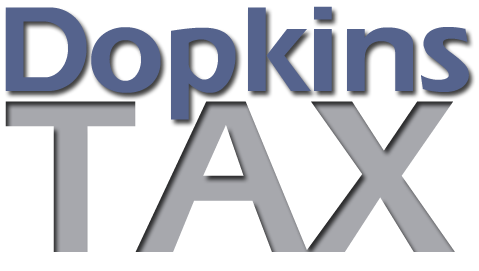PATH Act Impacts 9 Business Tax Provisions. Yes, Your Business
February 27, 2016 | Authored by Jill E. Colombo CPA
 February 27, 2016 – Late last year, we summarized The Protecting Americans from Tax Hikes Act (PATH) of 2015 that was signed into law on December 18, 2015. In this blog, we review the changes to certain tax provisions that impact all businesses.
February 27, 2016 – Late last year, we summarized The Protecting Americans from Tax Hikes Act (PATH) of 2015 that was signed into law on December 18, 2015. In this blog, we review the changes to certain tax provisions that impact all businesses.
R&D Credit
At the top of the list, the Research & Development credit has been permanently extended and made creditable against other taxes. The research credit equals the sum of:
- 20% of the excess (if any) of the qualified research expenses for the tax year over a base amount (unless the taxpayer elected the alternative simplified credit);
- The university basic research credit (20% of the basic research payments);
- 20% of the taxpayer’s expenditures on qualified energy research undertaken by an energy research consortium. In addition, for tax years that begin after December 31, 2015, eligible small businesses ($50 million or less of gross receipts) may claim the credit against their alternative minimum tax liability.
In addition, for tax years beginning on or after December 31, 2015, startup businesses (less than $5 million in gross receipts) may claim up to $250,000 per year of the credit against their FICA tax liability.
Built in Gains Tax
Another item to note in the business tax area is the permanent reduction of the built-un gains period for S corporations. The recognition period has been made permanent at 5 years, versus the original 10 year period for C corporations looking to make the election to S-corporation status.
Section 179 Depreciation
The ACT made changes to the depreciation Section 179 expensing election. The $500,000 expensing limitation and $2 million phase-out are retroactively extended and made permanent. Both of these amounts are indexed for inflation for tax years beginning after December 31, 2015. Expensing of computer software is also made retroactive and permanent. The 15-year write-off period for qualified leasehold improvement, retail improvements and restaurant property are made permanent under the new provisions. This expensing election is further heightened by the de minimis safe harbor in the tangible asset regulations.
Bonus Depreciation
Also, bonus depreciation has been extended through 2019 at the following rates:
- 50% bonus depreciation on qualified property for years 2015-2017
- 40% bonus depreciation on qualified property for year 2018 and
- 30% bonus depreciation on qualified property for year 2019.
In addition, the enhanced first-year depreciation cap on autos and trucks was extended through 2019 as well.
Work Opportunity Tax Credit
The Work Opportunity Tax Credit was extended through 2019 and expanded. The WOTC allows employers to hire members of certain targeted groups to get a credit against income tax based on a percentage of first-year wages up to $6,000 per employee. Generally, the percentage of qualified wages is 40% of first-year wages; 25% for employees who have completed at least 120 hours, but less than 400 hours of service for the employer. The Act retroactively expands the credit to apply to eligible veterans and non-veterans who begin to work for the employer before Jan 1, 2019. The maximum WOTC for hiring a qualified veteran generally is $6,000. It could be as high as $12,000, $14,000 or $24,000 depending on factors such as whether the veteran has a service-connected disability, the period of his or her unemployment before being hired, and when that period of unemployment occurred relative to the WOTC-eligible hiring date.
Small Business Stock
A taxpayer may exclude all of the gain on the disposition of qualified small business stock acquired after September 27, 2010 and before January 1, 2015. This gain is also excluded from the alternative minimum tax. This exclusion was limited to 50% of gain under pre-ACT law.
Enhanced Donation – Food Inventory
A C corporation engaged in a trade or business is eligible to claim an enhanced deduction for donations of food inventory. The deduction is equal to the lesser of (a) basis plus half of the property’s appreciation, or (b) twice the property’s basis. The food inventory must be meant for human consumption and meet certain quality and labeling standards. For taxpayers other than C corporations, the amount of contributions cannot exceed 10% of the taxpayer’s aggregate net income for the tax year from all trades or businesses from which those contributions were made for that tax year.
Active Duty Wage Credit
Eligible small businesses that pay differential wages-payments to employees for periods that they are called to active duty with the U.S. uniformed services for more than 30 days that represent all or part of the wages that they would have otherwise received from the employer can claim a credit. This differential wage payment credit is equal to 20% of up to $20,000 of differential pay made to an employee during the tax year. An eligible small business employer is one that (a) employed on average less than 50 employees on business days during the year, and (b) under a written plan, provides eligible differential wage payments to each of its qualified employees. A qualified employee is one who has been an employee for the 91-day period immediately preceding the period for which any differential wage payment is made.
Excise Tax – Medical Device
A moratorium was placed on the Medical Device Excise Tax for sales during calendar years 2016 and 2017. The 2.3% excise tax will not be applied on the sale of taxable medical devices.
Other Business Provisions – Permanently Extended under the PATH Act
- Exemption for RIC Interest-Related Dividends and Short-Term Capital Gains Dividends Permanently Extended
- Treatment of RIC As Qualified Investment Entity Permanently Extended
- Lower Shareholder Basis Adjustment for Charitable Contributions by S Corporations Permanently Extended
- Special Rule for Payments to a Charity From a Controlled Entity Permanently Extended
- Liberal Rule for Corporate Qualified Conservation Contributions Permanently Extended and Expanded
- Subpart F Exception for Active Financing Income Permanently Extended
Other Business Provisions – Temporarily Extended under the PATH Act
- Look-Through Rule for Payments Between Related CFCs under Foreign Personal Holding Company Income Rules Extended Through 2019
- New Markets Tax Credit Extended Through 2019
- Indian Employment Credit Extended Through 2016
- Domestic Production Activities Deduction Rules for Puerto Rico Extended Through 2016
- Empowerment Zone Tax Breaks Extended Through 2016
How do the changes in the PATH Act affect you or your business? Contact Jill Colombo at jcolombo@dopkins.com or your Dopkins Tax Advisor to explore your specfics.
Read more
- Path Act Blog summary
- How Dopkins Helps You Benefit from the R&D Tax Credit Program
- Dopkins Tax consulting

About the Author
Jill E. Colombo CPA
Jill specializes in corporate tax compliance and preparation services for businesses and individuals. She has significant experience with multi-state tax corporate issues, employee benefit plan compliance and international tax matters. Her projects include tax planning, international compliance and tax structure consulting services.

